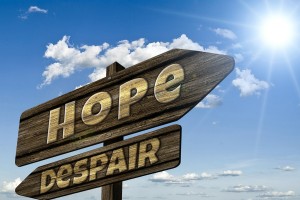
Geneva: COVID-19 had led to the first rise in extreme poverty in two decades: an additional 119 to 124 million people had been pushed back into extreme poverty in 2020, and the number of people living with food insecurity had risen by 318 million, according to the Food and Agricultural Organization – amounting to an unprecedented 2.38 billion people. Vital gains were being reversed, including for women’s equality and the rights of many ethnic and religious minority communities and indigenous peoples.
The Human Rights Council took note of these facts at a panel discussion on deepening inequalities exacerbated by the COVID-19 pandemic and their implications for the realisation of human rights, here on September 28, 2021.
Joseph E. Stiglitz, Nobel Laureate Economist, Columbia University, said that COVID-19 had not only exposed the grave inequalities within and between societies but had also exacerbated those inequalities. Access to the vaccines was extraordinarily difficult in emerging economies and almost impossible in most developing countries. The most artificial barrier right now was intellectual property. And that was why the waiver of the World Trade Organization was absolutely essential.
Gordon Brown, former Prime Minister of the United Kingdom and United Nations Special Envoy for Global Education, said that health rights were human rights. In most countries, today’s shocking gap between the vaccine-rich countries, where 70 per cent had been vaccinated, and the vaccine-poor countries, with only 2 per cent vaccinated, showed in stark relief that millions of people had been clearly denied their basic rights. It had been shown that there were enough doses to vaccinate the whole world by May next year by mobilising the doses of vaccine available in the West.
Some speakers said that the pandemic was no longer only a global health crisis, but it also represented a multidimensional crisis which during the past 18 months had deepened the severity of inequalities and social disparities. Support for the waiver of intellectual property rights for COVID-19 vaccines was expressed. Some speakers urged all countries to put the peoples’ rights to life and health first instead of other considerations such as economic, political or other interests.
Speaking in the discussion were: European Union, Cameroon, Finland, Bahrain, Mauritius, Ecuador, Azerbaijan, Egypt, Iran, China, Qatar, Indonesia, Azerbaijan, Iraq, Bangladesh, Mauritania, Ecuador, Montenegro, South Africa, Ghana, Morocco, Saudi Arabia, Malaysia and Nepal.
Also taking the floor were the following non-governmental organizations: Penal Reform International, Associazione Comunita Papa Giovanni XXIII, Action Canada for Population and Development, Centre Europe – tiers monde, Terre Des Hommes Federation Internationale and World Vision International.
José Francisco Cali Tzay, Special Rapporteur on the rights of indigenous peoples, presenting his annual report to the Council on the impact that the pandemic had had on the rights of indigenous peoples, was concerned about the impact of State COVID-19 recovery measures on indigenous peoples as State responses were disproportionately and negatively affecting indigenous peoples. Indigenous peoples faced higher risks of infection and death from COVID-19, especially as new variants of the virus continued to emerge. Despite their increased vulnerability to the virus, vaccine roll-out for indigenous peoples, in particular those living in remote areas, had not been prioritised in most countries. Indigenous peoples were utilising their own traditional systems and existing jurisdictional power to implement and enforce measures against COVID-19.
Michelle Bachelet, United Nations High Commissioner for Human Rights, said that the magnitude and scope of inequalities that had been created and exacerbated by COVID-19 were truly shocking. “The human rights scars of this pandemic ran deep and they were growing deeper,” she said.
– global bihari bureau




